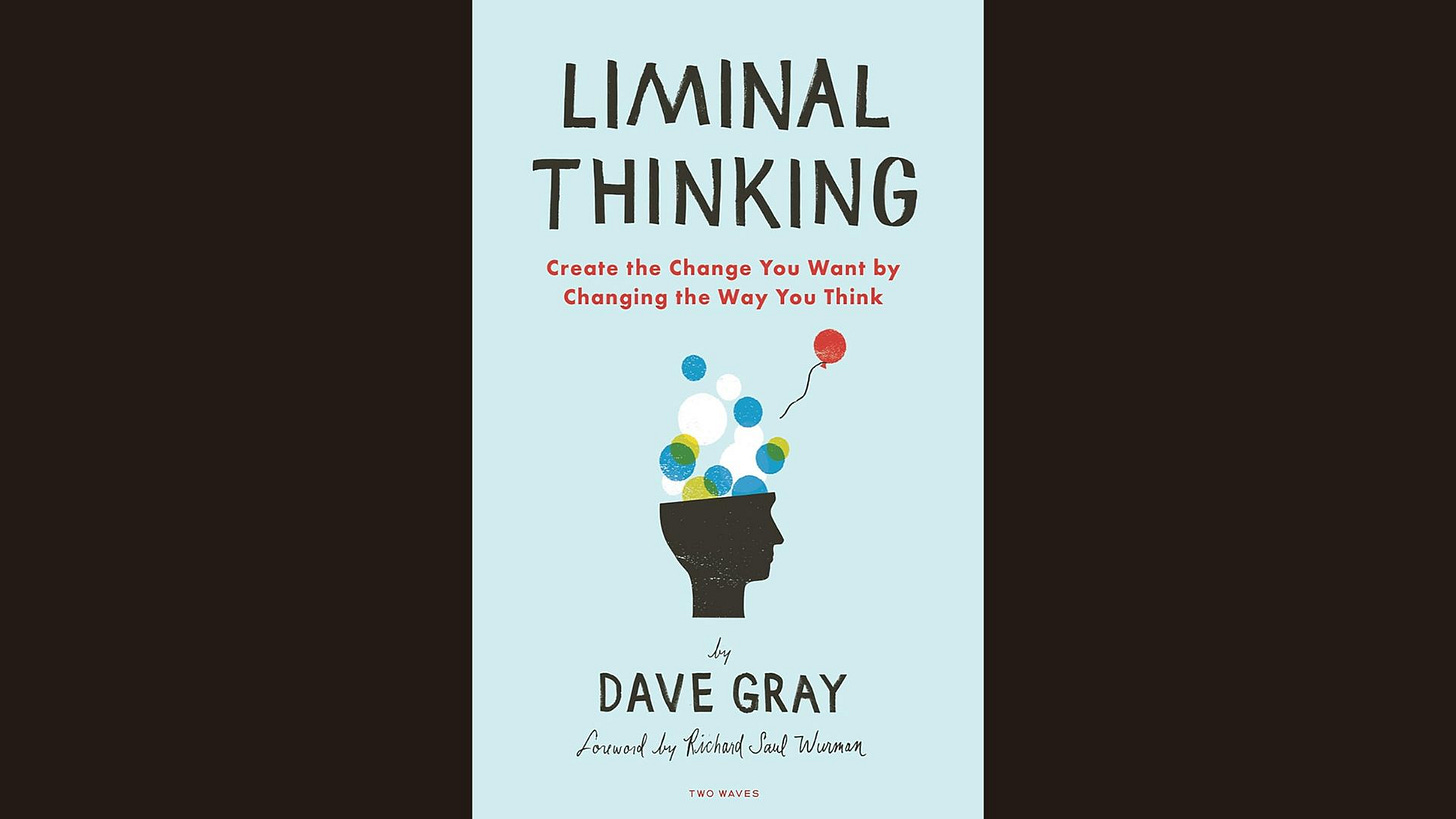Book Byte #331 "Liminal Thinking" by Dave Gray
Create the Change You Want by Changing the Way You Think
📣 Curious Quotes from the Author
“We construct our beliefs, mostly unconsciously, and thereafter they hold us captive. They can help us focus and make us more effective, but sadly, they also can limit us: they blind us to possibility and subject us to fog, fear, and doubt.”
“If you give people facts without a story, they will explain it within their existing belief system. The best way to promote a new or different belief is not with facts, but with a story.”
“That concept is important enough that I’m going to say it again: People rarely test ideas for external validity when they don’t have internal coherence. If it doesn’t make sense from within the bubble, you’re going to think it’s a mistake, or a lie, or somebody got it wrong. You will tend to do whatever is necessary to protect the consistency and coherence of that bubble, because to you, that bubble is reality itself. Liminal thinking requires a willingness to test and validate new ideas, even when they seem absurd, crazy, or wrong.”
“Most boundaries are convenient fictions.”
“Like the blind men and the elephant, it’s often the case that people see the same thing, but they see it differently, and the argument over who is right and wrong distracts them from learning or doing anything productive with the situation they find themselves in. The obvious is not obvious.”
“Having an idea of an elephant in your head is not the same thing as having a real elephant in your head!”
“I once asked a neuroscientist, “What’s the difference between consciousness and dreaming?” “Very little,” he told me. “In fact,” he said, “if you look at an MRI, at the actual brain processes that are happening when you are dreaming and when you are awake, they look almost identical. Only a practiced neuroscientist can tell the difference.”
“When people confuse their beliefs with reality, they get into arguments and conflicts”
“Some years ago, I came across a book that had inspired me as a high school student. The book was called Rapid Viz: A New Method for the Rapid Visualization of Ideas by Kurt Hanks. It was the first time I had ever seen someone articulate the idea of drawing as thinking, which since then has become a central theme of my life and work.”
📚 Cognition of the Book’s Big Idea
Though they influence how you perceive and engage with the world, beliefs are distinct from reality.
Beliefs can cause blind spots and distort your view of possibilities since they are shaped by restricted experiences. You can create new growth possibilities by identifying and overcoming these mental obstacles. You can break through deeply rooted habits and make significant changes in your life and career by using techniques like challenging presumptions, establishing safe places, and breaking routines.
Until Tomorrow,
Jason (Founder Club255)

